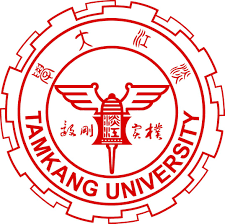Bioinorganic Chemistry LAB
Research Field
My name is Chung-Hung Hsieh, an associate professor in the Department of Chemistry at Tamkang University. I'm highly regarded for my research in inorganic and bioinorganic chemistry. I have served at Texas A&M University, National Tsing Hua University, and National Changhua University of Education's chemistry departments. I hold a Ph.D. in Chemistry from National Tsing Hua University. For many years, I've been devoted to innovative research in inorganic and bioinorganic chemistry, publishing over 80 articles/ papers/ report/ patents. My research has achieved some breakthroughs in theory and has been applied to benefit relevant industries through collaborations. I'm also a passionate educator, employing a lively teaching style that nurtures talents in chemistry. In classroom instruction and graduate supervision, I inspire independent thinking by leading with professional knowledge and extensive experience.
Chung-Hung Hsieh's research laboratory focuses primarily on the areas of inorganic and bioinorganic chemistry, with a particular emphasis on the study of metal nitrosyl compounds, nitrosyl complexes, and related model compounds of metalloprotein active sites. The research topics covered in the laboratory are extensive, including:
Synthesis and characterization of novel metal nitrosyl and nitrosyl-derived complexes Modeling the active sites of biologically relevant metalloproteins using these compounds
Investigating the reactivity of nitrosyl complexes in physiological and catalytic processes Developing potential applications of these compounds such as bioimaging, drug delivery, etc.The laboratory's research work involves various techniques like organic synthesis, inorganic synthesis, structural characterization analysis, and more. Key instrumentation regularly used includes NMR spectrometers, IR spectrometers, X-ray diffractometers among others. Theoretical calculations also play a crucial role in elucidating the electronic structures and reaction mechanisms.
Bioinspired Activation of Small Molecules (Nitric Oxide, Carbon Dioxide, Hydrogen) by Inorganic Molecular Compounds
This research area explores the use of bioinspired inorganic molecular compounds to activate and facilitate reactions with small gaseous molecules like nitric oxide (NO), carbon dioxide (CO2), and hydrogen (H2). The goal is to develop improved catalysts or functional materials by taking inspiration from the mechanisms employed by metalloproteins in biological systems.
Many metalloproteins in nature are able to activate and transform small molecules like NO, CO2, and H2 through their metal-containing active sites. By synthesizing inorganic compounds that can structurally and functionally mimic these biological active sites, researchers aim to unlock new reactivity pathways for valuable chemical transformations.
For example, iron-nitrosyl compounds can serve as models for nitric oxide activation, transport, and delivery based on how certain enzymes process NO in vivo. Similarly, metal complexes containing specific ligand motifs may enable CO2 reduction or H2 oxidation/evolution by providing biomimetic active site analogues.
-
Research Experience:
- Served as a research scientist at Texas A&M University
- Held a postdoctoral research position at National Tsing Hua University
Education:
- Obtained a Ph.D. in Chemistry from National Tsing Hua University
- Previously affiliated with the chemistry department at National Changhua University of Education
